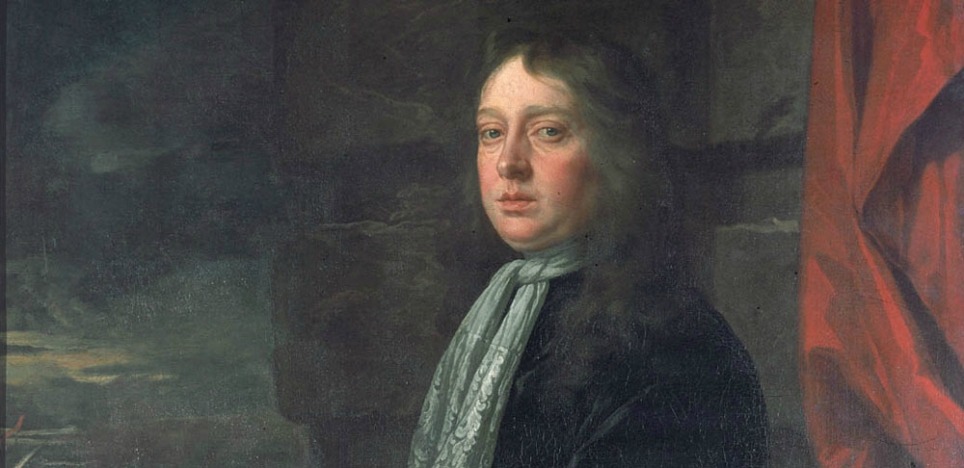William Penn (1644 - 1718) has been called one of the first true champions of American liberty. A Quaker minister, preacher, and missionary, he was born on October 14 in London during times when Protestants battled with Catholics and both groups also persecuted Jews and free-spirited men and women. In this intolerant age, Penn modeled radical respect for all peoples.
Penn made the most of his well-to-do upbringing by attending Oxford University and studying at a prestigious French Protestant University. Back in England in 1664, he went to law school in London.
Imprisoned in 1668 for distributing Quaker pamphlets that were considered heretical, he had plenty of time for silence and meditation. He wrote: "I thank God for my opportunities for solitude, and kiss the gentle hand that led me into it. Though solitude might seem barren to the world, it can never be so to me." In jail he also wrote pamphlets about freedom of conscience which were distributed through the Quaker underground.
In 1681, the King of England gave him a charter enabling him to establish an American colony. It became Pennsylvania, which many saw as America's first great melting pot. Philadelphia, the "City of Brotherly Love" became a sacred site for liberty. It was there that Thomas Jefferson wrote the Declaration of Independence and delegates drafted the Constitution.
To Name This Day . . .
 Spiritual Practice
Spiritual Practice
Some Fruits of Solitude: Wise Sayings on the Conduct of Human Life by William Penn has been edited by Eric K. Taylor. He sums up this extraordinary lawyer and sage's life and work with the following words:
"[William Penn] had the integrity and courage to follow his conscience, even at great personal cost. He suffered without becoming bitter. He held great power without being corrupted by it. He was a great thinker, but he had the humility and the wisdom to seek and value the input of others. In an intolerant age, he granted toleration to others while staying true to what he believed. In an age where Native Americans were often cheated, Penn treated them with dignity, honesty, and equality; he stands virtually alone in having kept and upheld the treaties he made with them. Penn showed by his life that a man of peace could live well in a violent world."
Take some time today to read this brief overview of Penn’s life and work, to seek out other works of his in the library, or to browse through "William Penn writings" online. Ponder the spiritual undertow in his work as he explores essential dimensions of democracy, such as freedom, equality, hospitality, justice, and reverence.
